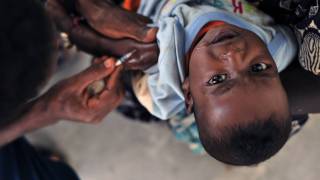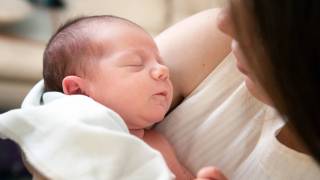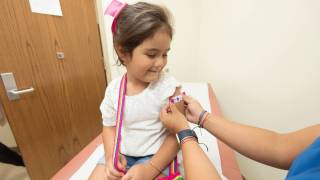Should College Students Get 3rd MMR Vaccination?

Mumps outbreaks on college campuses continue to puzzle health officials because most matriculating students have already received their required measles–mumps–rubella (MMR) vaccinations.
The ‘herd immunity’ effect was forecasted to limit mumps outbreaks.
The effect of a third dose of the MMR vaccine in stopping mumps outbreaks was unknown, until health officials at the University of Iowa (UI) implemented a widespread MMR vaccine program for their students.
Before the mumps outbreak on the UI campus in 2015, 98% of the students had received at least two doses of MMR vaccine.
Twenty-eight days after receiving a third MMR vaccine dose, students were found to have a 78% reduced risk of contracting mumps, the study authors wrote in the New England Journal of Medicine.
Additionally, the students who had received a second dose of MMR vaccine 13 years or more before the mumps outbreak, had an increased risk of contracting mumps.
These researchers believe the various mumps outbreaks are related to these factors:
- two-dose MMR vaccine effectiveness of just 66% to 95% against mumps
- high-density settings which can contribute to increased exposure risk
While this research found a third dose of MMR vaccine has "suggested benefits", the "data have been inconclusive," they said.
From January 1 to August 12, 2017, the District of Columbia and 47 states reported mumps infections in 4,240 people to the Centers for Disease Control and Prevention (CDC).
Before the mumps vaccination program started in 1967, about 186,000 cases were reported each year.
Mumps is a contagious disease caused by a virus. It typically starts with a few days of fever, headache, muscle aches, tiredness, and loss of appetite, followed by swollen salivary glands.
Complications of mumps can include meningitis (in up to 15% of cases), orchitis and deafness. Very rarely, mumps can cause encephalitis and permanent neurological damage.
The CDC recommends that children receive two doses of MMR vaccine:
- First dose: 12 through 15 months of age
- Second dose: 4 through 6 years of age
Students at post-high school educational institutions, such as college, trade schools, and training programs, who do not have evidence of immunity (protection) against mumps need two doses of MMR vaccine, separated by at least 28 days.
People who are born during or after 1957 who do not have evidence of immunity against mumps should get at least one dose of MMR vaccine unless they have a medical contraindication to the vaccine, says the CDC.
MMR-II is the only licensed mumps vaccine in the United States.
MMR and ProQuad both contain the protection for mumps, as well as protection for measles and rubella. ProQuad additionally protects against varicella.
Most pharmacies offer MMR vaccination services. The CDC Vaccine Price List provides private sector vaccine prices for general information.
Vaccine discounts can be found here.
The findings and conclusions in this report are those of the authors and do not necessarily represent the official position of the Centers for Disease Control and Prevention.
The authors disclosed no conflicts of interest. Cristina V. Cardemil, M.D., M.P.H., Rebecca M. Dahl, M.P.H., Lisa James, R.N., M.S.N., Kathleen Wannemuehler, Ph.D., Howard E. Gary, Ph.D., Minesh Shah, M.D., M.P.H., Mona Marin, M.D., Jacob Riley, M.S., Daniel R. Feikin, M.D., Manisha Patel, M.D., and Patricia Quinlisk, M.D., M.P.H.
N Engl J Med 2017; 377:947-956 September 7, 2017 DOI: 10.1056/NEJMoa1703309.
Our Trust Standards: Medical Advisory Committee


























